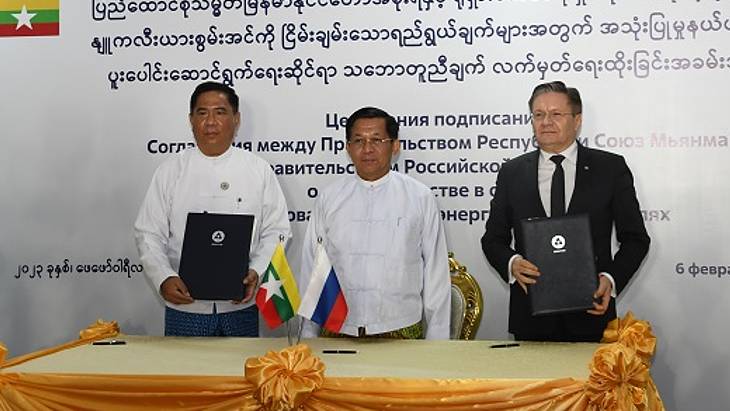Chairman of the State Administration Council and Prime Minister of Myanmar, Senior General Min Aung Hlaing, pictured above,at the signing, said: "This agreement is cooperation not only for Small Nuclear Power Plants but also the application of nuclear technology in many sectors and it will enhance the socio-economic development of the country."
Director general of Russia's nuclear power company Rosatom, Alexey Likhachov, said the agreement marked "a new chapter in the history of Russian-Myanmar relations, the 75th anniversary of which we are celebrating this year".
He said: "The creation of a new industry in the country will undoubtedly benefit the energy sector, industry and the economy of Myanmar. Nuclear energy offers a steady reliable supply of clean energy at a stable price. The introduction of nuclear technologies implies a powerful impetus for the development of natural sciences, education and training of highly qualified personnel. We appreciate the fact that Myanmar has a given preference to Russian nuclear technology."
The signing took place at the opening of the Nuclear Technology Information Centre in the Myanmar capital Yangon - the centre is a joint project between Rosatom and the country's Ministry of Science and Technology.
The state-run newspaper, The Global New Light of Myanmar, said the new agreement - which followed memorandums of understanding signed last year which set out cooperation in training and skills development in the field of nuclear energy and shaping positive public opinion - covered the next stages of cooperation in applying nuclear energy in 14 areas.





_18570.jpg)
_16159.jpg)
_49205.jpg)
_18938.jpg)





